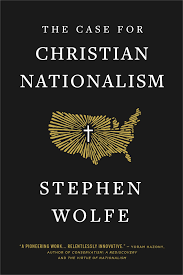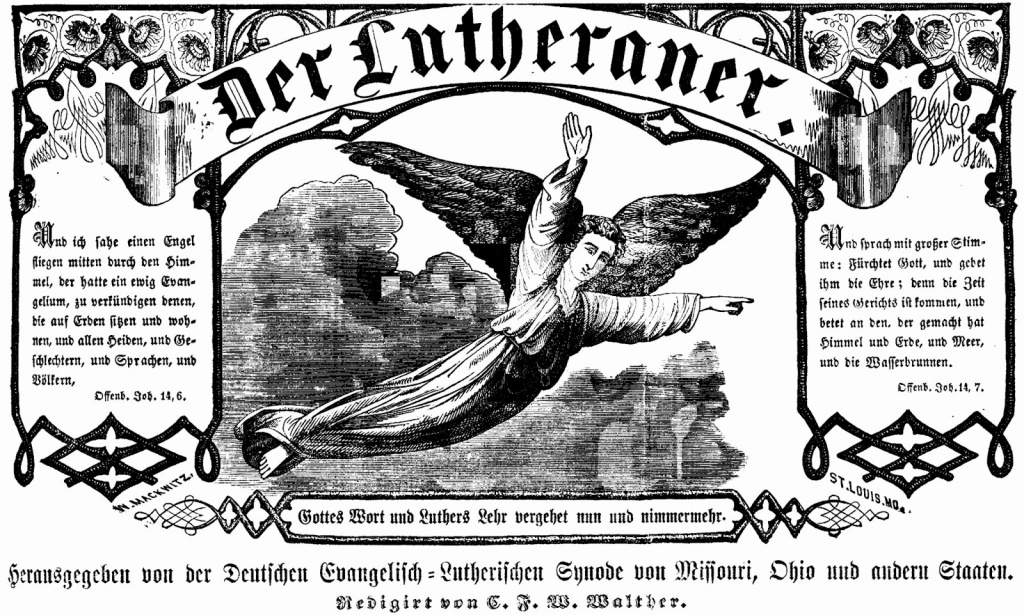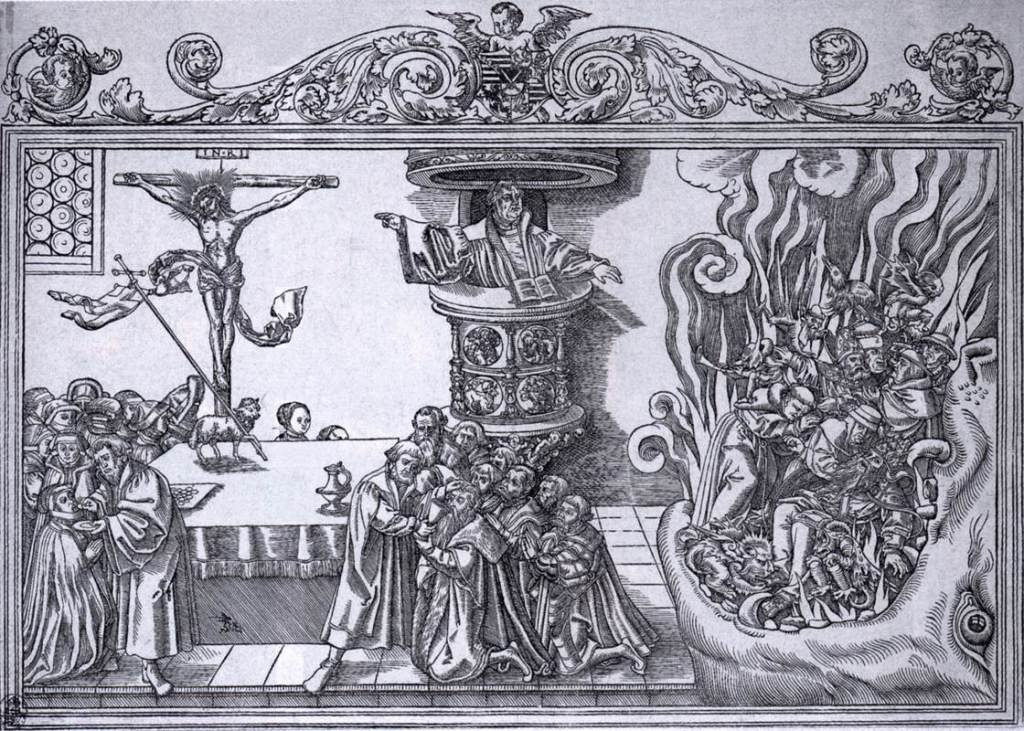As was well documented by the fathers of the Missouri Synod, the Reformed have never truly opposed the commingling of Church and State, and this is seen again in Stephen Wolfe’s book on Christian nationalism. In a Facebook post endorsed by Wolfe as a “good summary of points in the book,” of which I will bring fourth some excerpts, the book is characterized as teaching the following:
- Cultural Christianity is a good thing overall, because it creates implicit social pressure that prepares people for gospel witness, and reduces the need for coercive civil law. [Yes, indeed, it is (according to Wolfe) not the Law which prepares for the Gospel, but, instead, “cultural Christianity,” that source of godless hypocrites.]
- Cultural Christianity cannot make regenerate Christians, but that does not invalidate its utility in advancing biblical morality and the common good. [To speak of something incapable of producing Christians as (truly) advancing biblical morality is a misuse of the term.] Why would any Christian praise the rise of secular culture and celebrate the decline of cultural Christianity? [This is a false choice.] If you are in favour of a Christian culture in your own family (which likely includes some non-regenerate children) [?] why not in the nation?…
- The purpose of Civil Law is the common good of the community. Since the Moral Law of God is in the interest of the public good, there is no reason why Civil Law should not be in accordance with Moral Law. [As long as this is not so understood that it permits no allowances because of the hardness of men’s hearts, it is rightly said.]
- Wolfe sees the Mosaic Law as the perfect application of Natural Law. [This is most certainly either hyperbole or indicative of a most insufficient spiritual knowledge.] The principles of Mosaic Law are still relevant, but the application may be different.
- Civil Law must never be in opposition to God’s Law. God does not sanction the unjust abuse of authority from a civil magistrate.
- A Christian magistrate should use his authority to secure and supplement Christian culture, since this is in the interest of the common good.…
- Revolution against tyranny is permitted, but it can only be conducted by means of a lesser magistrate interposing himself between the tyrant and the people. [To call this “revolution” is a misuse of the term.]
- When Christians are living under tyranny, and revolution is infeasible, those Christians must patiently wait on God for deliverance, obeying what is just and disobeying what is unjust.
- It is a legitimate exercise of civil authority to suppress externalized false religion. False religion not only harms people’s souls, but is not in the interest of the common good. [With this, Wolfe screams his support of the centuries of Reformed persecution of Lutherans, which will become even more apparent later.]
- A Christian nation does not necessarily require the establishment of a national church. [This is said much too lightly — the Landeskirchen actually prevent the existence of a truly Christian nation.] There could be [?] room for various denominations and traditions in a Christian nation, so long as these differences do not erode national unity and the common good.
- Wolfe thinks that establishment [of a Landeskirche] may be good in some circumstances and bad in others. [This, coupled with the previous point — that with the establishment of a Landeskirche would come a suppression of other denominations as allegedly eroding national unity and the common good — shows that Wolfe is not at all sincere in his feigned opposition to State control of the Church.]
- The last two chapters are geared toward a discussion of Church/ State separation in the American constitution. He does not believe that the founding fathers of America were completely against establishment at the state level. [Unfortunately, this is all too true, as Walther often bemoaned the violation of the principle of the separation of Church and State even in America.] The amendment was put in place to safeguard the nation against the federal establishment of a particular church or denomination.





